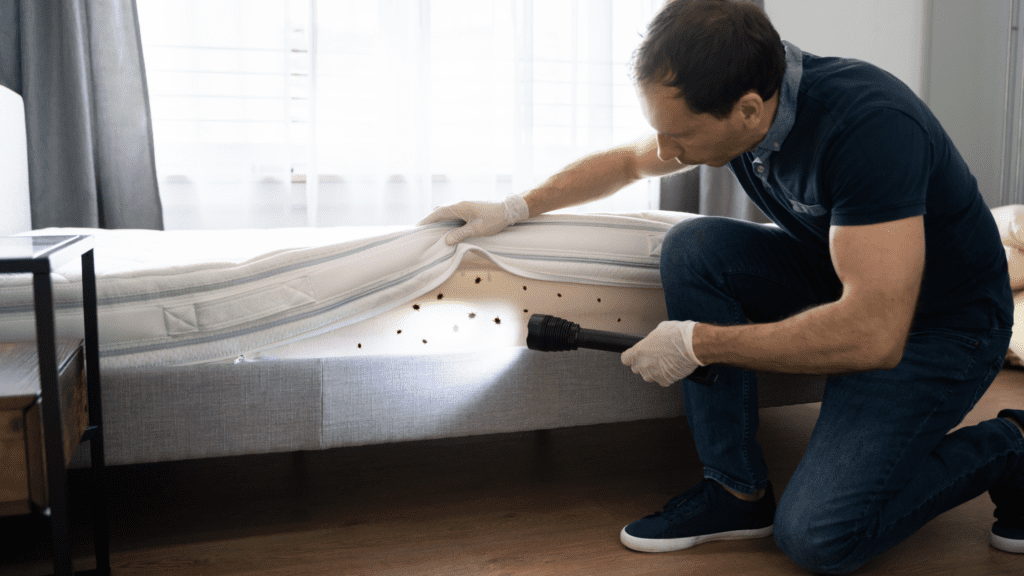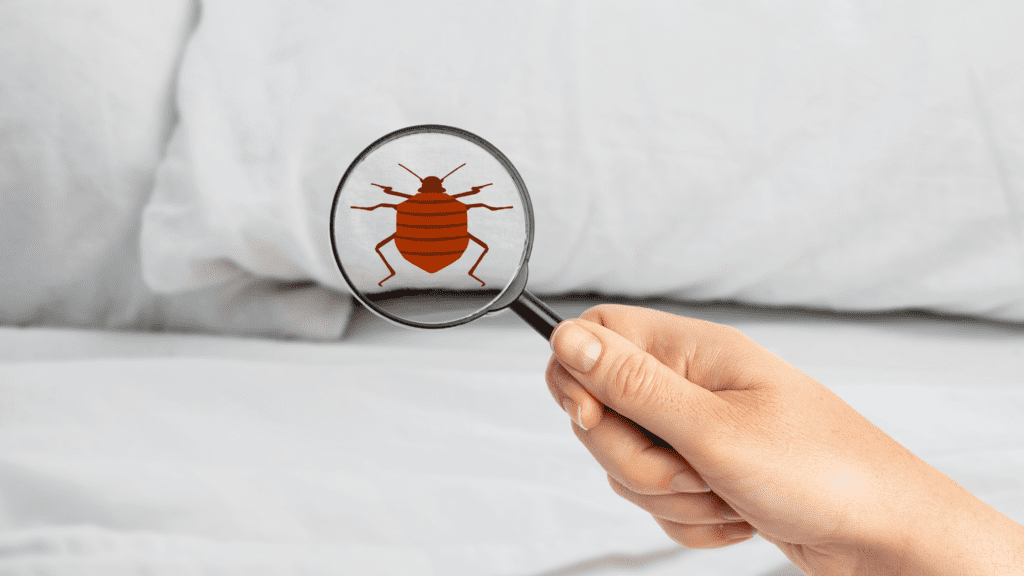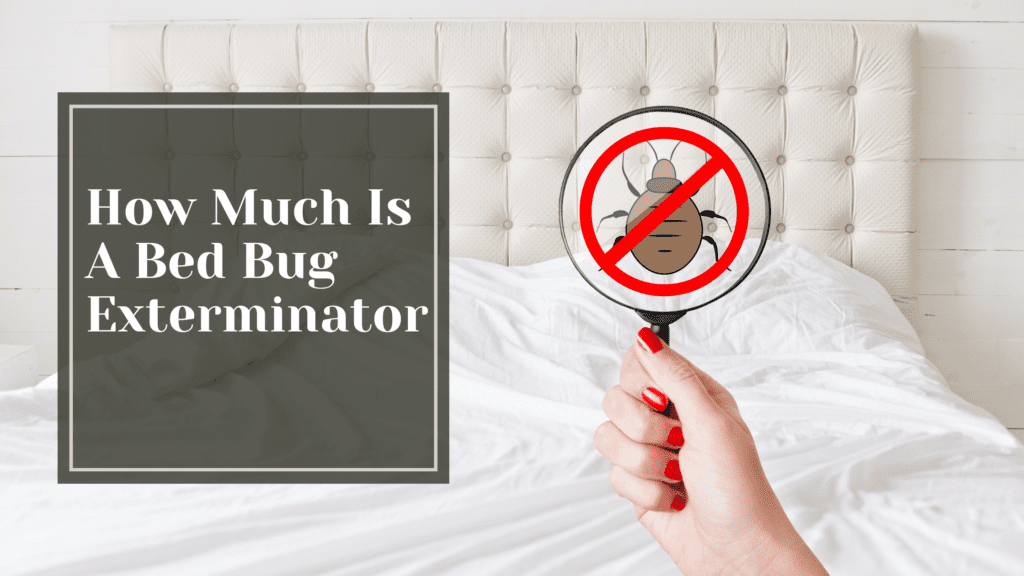
As a homeowner, dealing with a bed bug infestation can be frustrating and worrisome. Eliminating an established bed bug population requires professional extermination to fully eradicate the pests and ensure they do not return. When bed bugs invade your home, hiring a qualified exterminator is critical to resolving the problem. However, exterminator services do come at a cost. But how much do they cost?
Table of Contents
ToggleAverage Cost of Professional Bed Bug Exterminator
The cost of professional bed bug extermination can vary significantly depending on the severity of the infestation and treatment methods used. On average, you can expect to pay between $500 to $1,500 per room to eliminate an established bed bug infestation in a home.
For a minor bed bug problem consisting of small, isolated areas of activity, the total cost may be at the lower end of the range. However, more severe, long-standing infestations that have spread to multiple rooms can cost $3,000 or more to eliminate. Some key factors that determine the overall cost include:

- Number of rooms affected: The more rooms that require treatment, the higher the total cost will be. Bed bugs can easily spread between rooms through small cracks and crevices.
- Type of treatment: Heat treatments or fumigation tend to cost more than conventional spraying of pesticides. Heat treatment involves heating the room to kill the bed bugs, while fumigation requires tenting and filling the area with poisonous gas. These advanced methods may be needed for severe infestations.
- Number of follow-up visits: Most bed bug exterminators will include at least one follow-up visit in the initial treatment to re-treat any areas where bed bugs persist or reappear. Additional follow-ups will increase the total bill.
- Preparation required: The amount of clutter and cleaning in the space can affect the total cost. More cluttered, messy rooms take longer to treat and require more effort to prepare. Bed bug exterminators may charge extra for intensive preparation and cleaning.
Factors Affecting the Cost of Bed Bug Exterminator
The cost of bed bug exterminator can vary significantly depending on several factors.

- The size of the infested area is one of the biggest determinants of price. Treating a small apartment will cost much less than a large house. Exterminators charge by the square foot, so the total area requiring treatment directly impacts the total fee.
- The level of infestation also affects cost. A minor infestation with only a few bed bugs concentrated in one room will be cheaper to eliminate than a widespread, long-term infestation that has spread to multiple rooms. Severe infestations typically require multiple visits and intensive treatments to fully eliminate, increasing the total price.
- The method of treatment used plays a role in the total cost. Heat treatments or fumigation tend to be more expensive than traditional pesticide spraying. Non-toxic treatment options using essential oils or diatomaceous earth may have lower upfront costs but require multiple lengthy applications, resulting in higher long-term fees.
- Additional services such as follow-up inspections, mattress and furniture encasements, and clutter removal or storage can increase the overall price. Disposing of heavily infested furniture and belongings adds to the total cost as well.
- Travel fees for exterminators servicing remote locations may be charged if the treatment address is a long distance from their base of operations. Weekend or emergency bed bug exterminator visits often come with additional fees due to increased demand for those time slots.
Initial Inspection and Treatment Quotes
An initial inspection by a licensed and reputable bed bug exterminator is crucial to determine the severity of an infestation and provide an accurate treatment quote. During the inspection, the exterminator will:

- Thoroughly examine the premises to locate any bed bugs, eggs, larvae, or feces. They will check cracks and crevices in walls, outlets, baseboards, mattresses, box springs, headboards, and linens.
- Use monitors or dogs trained to detect bed bugs, which can locate infestations in their earliest stages.
- Provide an assessment of how widespread the infestation is and what areas need to be treated. They may recommend treating adjacent rooms as a precaution.
- Discuss the best course of action based on the inspection findings and your budget. Treatment options typically include heat treatments, steam cleaning, freezing, and pesticide applications. Multiple methods may need to be used for severe infestations.
Initial Treatment Costs
The average range for initial bed bug treatment is $500 to $3,000 depending on the size of the area. Specific costs include:
- Inspection – $50 to $200. Some companies waive the fee if you proceed with treatment.
- Single room – $300 to $1,000. Typically includes 2-3 visits for treatment and follow-up.
- Apartment unit – $500 to $1,500. All rooms in a unit are treated.
- Whole house – $1,000 to $3,000. For severe infestations, all rooms in the home are treated.
- Repeat or follow-up visits – $200 to $500 per treatment. Usually needed for heavy infestations.
Heat and Chemical Treatment Options: Pros and Cons
When considering bed bug treatments, you have two main options: heat or chemical treatments. Both have their pros and cons, so you’ll need to determine which method is right for your situation.
Heat Treatment
- Heat treatment involves raising the temperature in the treated area to at least 113°F, the minimum temperature required to kill bed bugs and eggs. A pest control professional will bring in industrial heaters and fans to heat the room and its contents to the target temperature.
- The benefits of heat treatment are that it is non-toxic and can kill bed bugs in all life stages, including eggs, in a single treatment. However, it requires vacating the premises during treatment and can damage heat-sensitive materials. It also may not penetrate walls or floors where bed bugs can hide. Multiple treatments are often needed, and it tends to be more expensive than chemical treatments.
Chemical Treatment
- Chemical treatments use EPA-registered pesticides to kill bed bugs. The pest control technician will apply the chemicals as liquids, aerosols, or dust in areas where bed bugs may hide. Common options include pyrethrin, permethrin, bifenthrin, or imidacloprid.
- The main benefit of chemical treatment is lower cost. However, it may require multiple applications to kill bed bugs in all life stages and eggs. There is also a risk of pesticide resistance developing in some bed bug populations. Another downside is the use of chemicals in living spaces which some find undesirable. Proper safety precautions must be taken to minimize exposure to humans and pets.
DIY vs Professional Bed Bug Extermination: Which Costs Less?
When it comes to bed bug extermination, you have two options: do-it-yourself treatment or hiring a professional exterminator. DIY methods may seem less expensive upfront, but professional extermination is often the most thorough and cost-effective solution in the long run.
DIY bed bug treatment typically involves using over-the-counter sprays, dust, and aerosol insecticides from your local hardware store. These products contain chemicals like pyrethrin or permethrin that you apply directly to baseboards, mattresses, carpeting, and furniture where bed bugs may hide. DIY treatment requires repeatedly applying these chemicals over weeks or months to fully eliminate an infestation. However, bed bugs are becoming increasingly resistant to these chemicals, and improper application will not eliminate the infestation.

Professional bed bug exterminators have the proper training, equipment, and pesticides to eliminate infestations. Bed bug exterminators will conduct a thorough inspection to locate all bed bug-hiding spots and nests. They then use a combination of pesticides and non-chemical treatments, such as heat or steam, to eliminate the infestation. While professional extermination typically costs between $500 to $1,500 per room, it is often far more effective at fully eliminating bed bugs in one visit versus repeated DIY treatments.
Conclusion
In summary, the cost of bed bug extermination can vary significantly based on the severity of the infestation and treatment methods used. As a homeowner, the best approach is to get multiple inspections and quotes to find a licensed and reputable bed bug exterminator that suits your needs and budget. While do-it-yourself treatments may seem appealing to save money, bed bug infestations often require professional intervention to fully eliminate the pests and ensure they do not return. Your investment in a comprehensive bed bug treatment program will provide peace of mind and help you reclaim your home. Though the upfront costs may be high, the long-term benefits to your home, health, and sanity make professional bed bug extermination worth the price.





